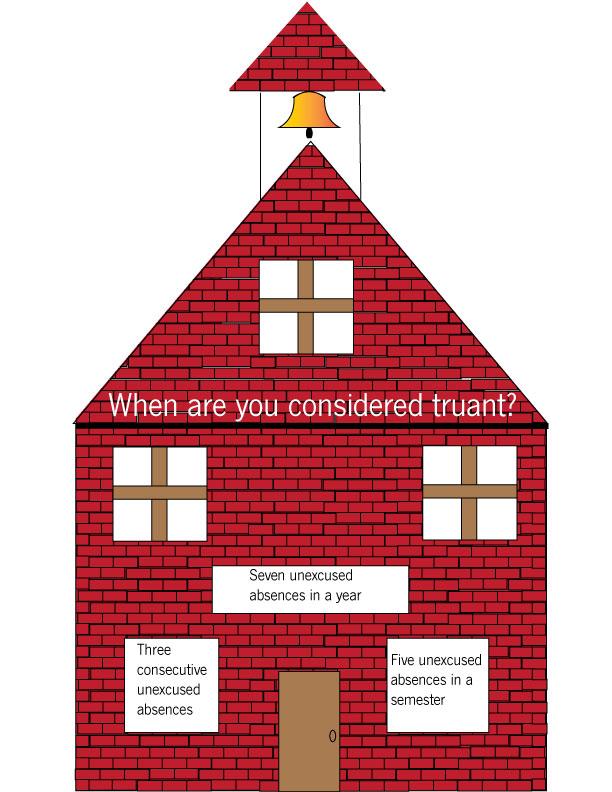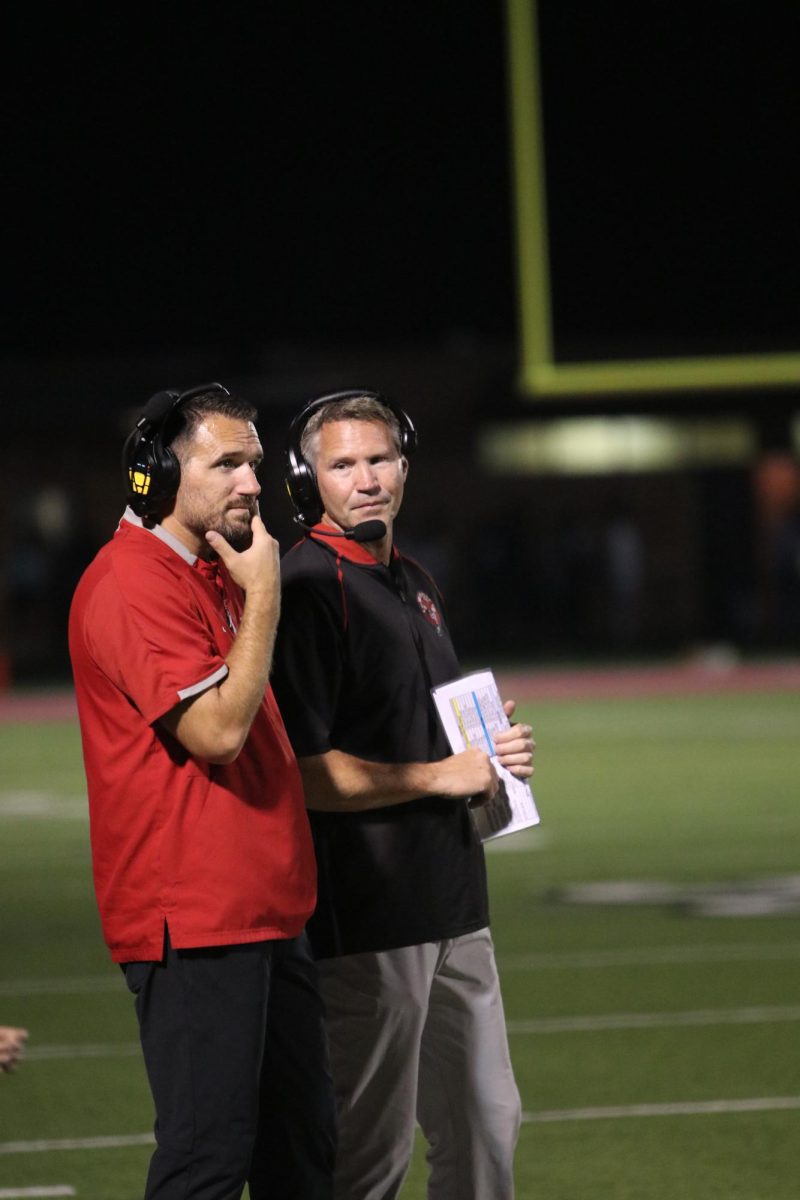Truant students face consequences
As absences pile up for many students, truancy guidelines are explained
April 27, 2016
Truancy, in the LHS Student Handbook, is defined as “any three consecutive unexcused absences, any five unexcused absences in a semester or any seven unexcused absences in a school year, whichever occurs first.”
This means class periods. If a student is not excused from their first-hour class, for example, and decides to skip that class three days in a row, that counts as three unexcused absences in a row, making the student legally truant.
“Truancy is not being where you are supposed to be,” assistant principal Margene Brohammer said. “It is not attending classes….If you’re at a funeral or if you have a reasonable excuse and your parents are in the loop, then that’s not going to be truancy. Unexcused is the part that’s important.”
Every few weeks, counselors, assistant principals and social workers meet to discuss attendance for the students they oversee.
“…We understand that there are situations that come up and that things happen,” counselor Aaron Ebke said. “What we look at when we meet together is, ‘Are students missing repeatedly?’ ‘Is it happening often?’ [and] ‘How close are you getting to that three [unexcused absences] in a row?’”
Once a student is considered truant, there are many different routes administrators take in order to inform students and their parents.
“We use different ways depending upon the situation,” Brohammer said. “But we work with families, we work with the student and again we want to get them the support that they need. Usually a letter is sent home but it might be a phone call. It might be in a conference with a student. Again, there’s not just a ‘one size fits all’ notification. We do a letter, we do a conference with the student, we do parent conferences, and it might be the administrator, it might be the social worker, it might be the counselor.”
After being notified of the truancy, students are usually required to appear before a judge to explain why they weren’t coming to school. There are exceptions though, which is evident through a student who asked to remain anonymous. We will call them Don.
“I actually [instead of going to court] had a relatively brief meeting with my principal and the district attorney’s office instead,” Don said. “I did not meet with a judge.”
Just like there are different ways administrators discipline truant students, there are different reasons for students choosing not to attend classes in the first place.
“Most of the time [I skipped] because [of] the people here,” another anonymous student, Tina, said. “I try to stay out of trouble and stuff, but it seems like no one wants to listen to me.”
Administrators hear many of the things that drive students to skip school.
“Some students will say that it’s boredom because things are too hard, some will say it’s boredom because things are too easy,” Brohammer said. “Some will say ‘It’s too many people,’ some will say ‘I’m used to a larger environment,’ some people will say it’s a feeling of independence and kind of getting away with something, and others will say that they don’t like being dependent.”
Truancy can follow students for the rest of their lives.
“I talk about high school graduation as, it’s not the goal, but it’s the first thing you can do to set yourself up for the rest of your life,” Brohammer said. “I don’t want a bunch of 90-year-olds looking back and regretting that they didn’t do what it took when they were 17 or 18 to graduate.”
But when students are willing to make an effort, Brohammer says, it makes the process of getting back on track much easier.
“Usually when our kids say, ‘I’m going to give it a try,’ they find out they don’t hate it,” Brohammer said. “It’s not like it’s Brussels sprouts or anything, attending, it’s just getting back into the habit that regular attendance is… There are plenty of students here at Lawrence High who, every single class, every single day, they’re there, they’re taking care of business. So, it is possible to not be truant.”
All in all, evading truancy is the only way to allow yourself to graduate.
“If you want to graduate, I expect y’all to go to school,” Tina said.















